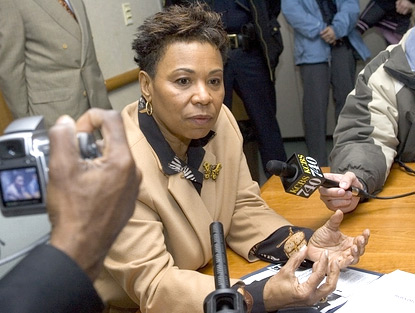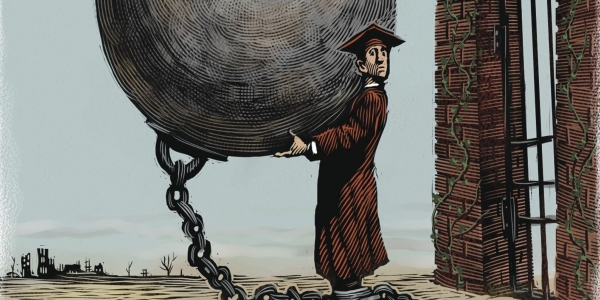
By Tom Hayden
Progressive America Rising via TomHayden.com
Feb 28, 2014- Should Senator Bernie Sanders run for President in 2016? (Photo: AP, 2014.)Senator Bernie Sanders is preparing a presidential run. While it can still be called off, volunteers already are eyeing Iowa and New Hampshire, a database is being prepared, and factions being formed, and its only winter 2014.
The chief question being debated internally is whether Hillary Rodham Clinton needs a challenge to her present dominance. The Hillary defenders say the Democrats need to pave a smooth path through the Democratic primaries and avoid the crippling divisions in the Republican Party. They warn that an independent Bernie Sanders campaign in 2016 will siphon enough votes from Hillary to elect the Republican nominee, thus locking up every branch of government. That would be a disaster for the Democrats and every advocate of women's rights.
Progressive Democrats who share Bernie's agenda are likely to be troubled and divided if he runs as an independent. They say he needs to get over his emotional hostility toward the Democrats, which is rooted in their long-ago opposition to him in Vermont. They point out that Bernie already caucuses with the Senate Democrats, so that entering the Democratic primaries would be a reasonable step towards maximizing his influence.
However this is sorted out, there is a vast discontent among the Democratic rank-and-file alongside the recognition of the historic moment for women. The discontent is being channeled into a sharp progressive shift in Democratic politics, originating in the 2008 Wall Street Recession, the rise of Occupy Wall Street, the elections of Mayor De Blasio in New York, Senator Sherrod Brown in Ohio, Senator Elizabeth Warren in Massachusetts, Senator Tammy Baldwin in Wisconsin, and even in recent socialist stirrings in Seattle.
This shift is decidedly away from the neo-liberal, pro-Wall Street economics implemented in the Clinton era. Those Clinton policies split the party over NAFTA, the Seattle WTO protest, financial deregulation and the role of derivatives, the 2009 Wall Street bailout, the stimulus versus deficits debate, and campaign finance reform. As an immediate example of the shift, Paul Krugman, who says, "I am in general a free trader," is hoping that the NAFTA-style Trans-Pacific Partnership (TPP), "just fades away.” Harry Reid and Nancy Pelosi are already scuttling any vote on the proposal until after the November election.
Adding to the rejection of Clinton-era economic policies, Hillary also has been more hawkish on Iraq, Afghanistan and the drone wars than President Barack Obama, the congressional Democrats, and the rank-and-file. That widens the gap further.
So which Clinton will it be in 2016? More than any personalities in American politics, the Clinton family knows how to adapt. Perhaps they will slide quickly to the left. They showed up with smiles at De Blasio's inauguration, solidly supporting one of their many protégés. But at the same time, a rival Clinton protégé, Governor Andrew Cuomo, of New York, is supporting tax benefits for the ultra-rich, advertising New York as a corporate investment haven, and opposing De Blasio's plan for permanent funding for pre-K based on taxing the wealthy.
Choices, choices. How far can Hillary "adjust" before the accusations of flip-flopping and opportunism consume the media space? Perhaps she will select someone like Ohio's Senator Brown as her vice-presidential nominee to appease the parties, and the AFL-CIO's populist hunger. Other deals are possible.
Meanwhile, the vacuum is there for Bernie Sanders, the most genuine representative of the party's New Deal and Progressive traditions, and the newer opposition to climate change, to hold high office in years. His commitment to Medicare-for-all is unmatched. Bernie is not as outspoken on issues like Afghanistan and Iraq, but he is a thoughtful dove in comparison to Hillary. Democrats like Bernie, which is no small asset. Additionally, he is free to run in 2016 and, if he loses, return to the Senate floor with a louder voice and longer email list.
Two things seem clear at the moment: Hillary will beat Bernie in a primary, while Bernie will pull Hillary towards a mandate for more progressive stands than she will take if running unopposed. It's unclear how much momentum Bernie might generate, but he might well amass a significant delegate bloc and, like Howard Dean, contribute to building "the democratic wing of the Democratic Party."
If Bernie runs as an independent, however, the picture is cloudy, with storms predicted.








 Today’s speculators have created grotesque financial mechanisms, from usurious interest rates on loans to legalized accounting fraud, to plunge the masses into crippling forms of debt peonage. They steal staggering sums of public funds, such as the $85 billion of mortgage-backed securities and bonds, many of them toxic, that they unload each month on the Federal Reserve in return for cash. And when the public attempts to finance public-works projects they extract billions of dollars through wildly inflated interest rates.
Today’s speculators have created grotesque financial mechanisms, from usurious interest rates on loans to legalized accounting fraud, to plunge the masses into crippling forms of debt peonage. They steal staggering sums of public funds, such as the $85 billion of mortgage-backed securities and bonds, many of them toxic, that they unload each month on the Federal Reserve in return for cash. And when the public attempts to finance public-works projects they extract billions of dollars through wildly inflated interest rates.  By Robert Creamer
By Robert Creamer




 Sept 27, 2013- The United States is exceptional, President Barack Obama insisted on Tuesday addressing the United Nations General Assembly, clearly in a bid to refute Russian President Vladmir Putin's criticism of American exceptionalism in a recent article published in The New York Times.
Sept 27, 2013- The United States is exceptional, President Barack Obama insisted on Tuesday addressing the United Nations General Assembly, clearly in a bid to refute Russian President Vladmir Putin's criticism of American exceptionalism in a recent article published in The New York Times. 










![[PDA - Heathcare NOT Warfare - Sign the Petition.]](http://pdamerica.org/images/ads/HealthNotWar_final.jpg)


